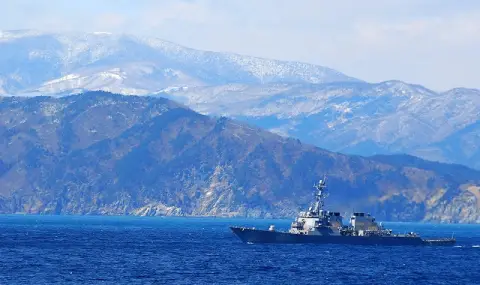NATO has announced that it is launching a mission to monitor the Baltic Sea after the alleged sabotage of undersea cables in recent months, reports "Reuters".
Several undersea telecommunications and power cables have been cut in the region, as experts and politicians accuse Russia of organizing a hybrid war against the West as the two sides fight over Ukraine.
At a meeting in Helsinki of NATO member states in the Baltic Sea, the head of the Alliance, Mark Rutte, said that the "Baltic Sentry" mission will "involve a range of assets, including frigates and maritime patrol aircraft, among others, and will increase our vigilance in the Baltic Sea".
He declined to give details of the exact number of ships "because that could vary over the weeks" and said he did not want to make "the enemy wiser than they already are".
A NATO statement said the operation would "continue for an undisclosed period of time".
The sabotage has been blamed on a "shadow fleet" of ships - often aging and operating under opaque ownership - that have been transporting Russian crude oil and petroleum products under embargo since the invasion of Ukraine.
"The investigation into all of these cases is ongoing, but there is cause for serious concern. "Protecting our infrastructure is of the utmost importance," Rutte said.
"This is not only crucial for energy supplies via power cables or pipelines, but more than 95% of internet traffic is provided via submarine cables, and 1.3 million kilometers of cables ensure approximately $10 trillion in financial transactions every day," he noted.
Swedish Prime Minister Ulf Kristersson said before the meeting that it was "completely unacceptable that this damage has been increasing recently," but expressed caution in pointing the finger at the culprit.
"We are not accusing anyone of anything at this time. We do not do this lightly without very strong evidence," he said.
